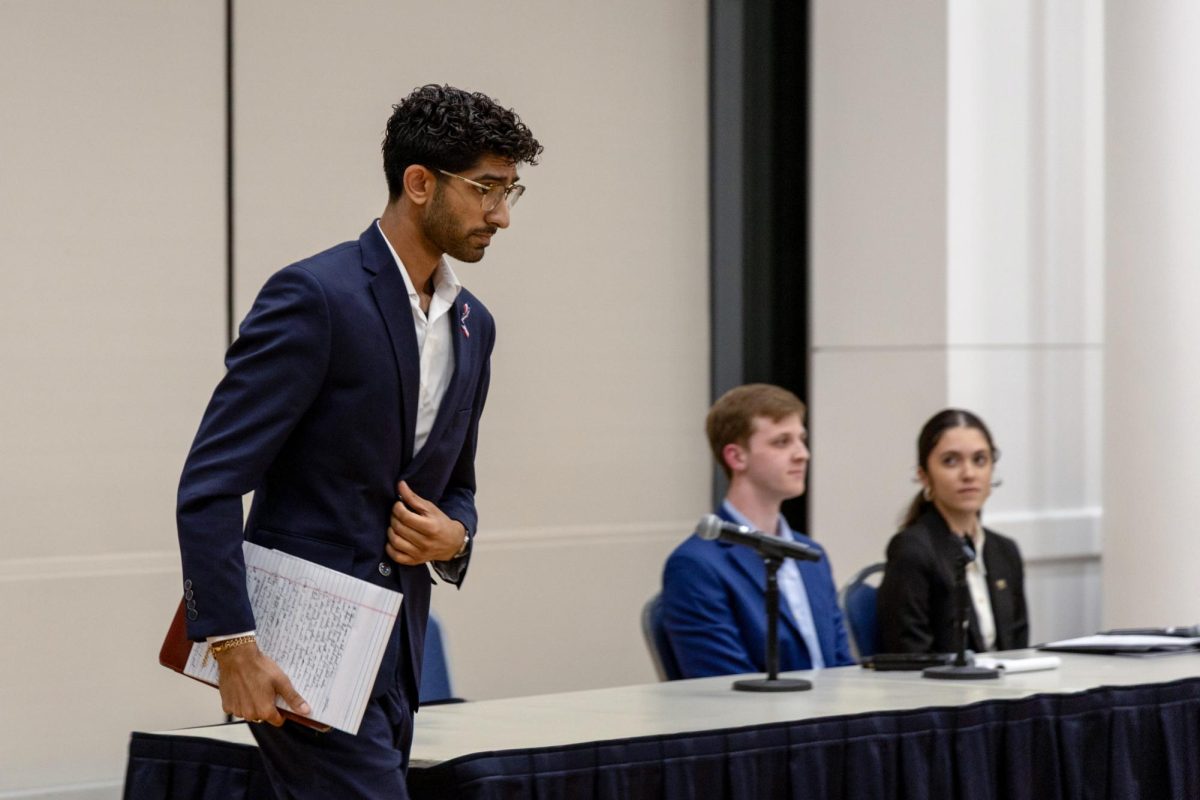GW among Washingtonian’s 2001 ‘turkeys’
A prominent Washington magazine called GW a “turkey” in its November issue for closing the campus and telling students to go home for October World Bank and International Monetary Fund meetings that never happened.
GW joined Gary Condit and former President Bill Clinton among others who were awarded Washingtonian magazine’s “Turkey 2001” awards. The annual distinction is given to people who “stand above the crowd when it comes to acting foolish,” according to the magazine.
The magazine also blasted White House Press Secretary Ari Fleischer for telling Americans after the Sept. 11 attacks to “watch what they say.”
D.C. Mayor Anthony Williams joined the ranks of turkey award winners because he realized on Sept. 11 that the nation’s capital lacked a disaster plan. And evangelist Jerry Falwell also took the honor for blaming the attacks on gays, feminists and the ACLU.
More anthrax found at Hill offices
Trace amounts of anthrax were found over the weekend in four congressional offices but do not pose a significant health risk, government officials said.
On Saturday, Capitol officials said spores were found in the Hart Senate Building offices of Larry Craig (R-Idaho), Bob Graham (D-Fla.) and Dianne Feinstein (D-Calif.). Spores were also discovered in the office of Rep. Elijah E. Cummings (D-Md.) on the sixth floor of the Longworth House office building.
Capitol police said the spores might be a case of cross-contamination from previous anthrax-laden letters.
The discovery of anthrax spores caused the shutdown of all six major House and Senate office buildings last month. The Hart building remains closed.
Government warns of cyberterrorism
Terrorists are likely to use their intelligence to attack the internet and critical Web infrastructure, the government’s cybersecurity chief warned the high-tech industry last week.
“Our enemies will use our technology against us,” Richard Clarke, President George W. Bush’s cybersecurity adviser, told a Microsoft convention. “They may not be able to build it, but they can understand it.”
He said the international computer network is “fragile” because it was not designed to accommodate the traffic and kind of activity it experiences now.
Clarke urged top technology CEOs to reconsider their security practices and work together to better protect their networks and information systems.
“We now recognize that security costs money,” he said. “Freedom isn’t free, and neither is security.”
Red Cross to burn blood
The Red Cross will have to burn one in five donations received after Sept. 11 because the blood outlasted its shelf life, according to a Washington Post report.
A huge number of donations came in the days that followed the attacks, a golden opportunity to bolster the nation’s blood reserves, according to health officials.
But the Red Cross lacked facilities to freeze the blood, The Washington Post reported. Without freezing, the shelf life of blood is 42 days.
Health officials said destroying the blood is a testament to the nation’s inefficient blood storage system.
“It could be very damaging and cost them an enormous amount of goodwill,” Arthur Caplan, former chairman of the Advisory Committee on Blood Safety and Availability for the Health and Human Services Department, told The Washington Post. “It’s inexcusable.”
-Zeb Eckert






